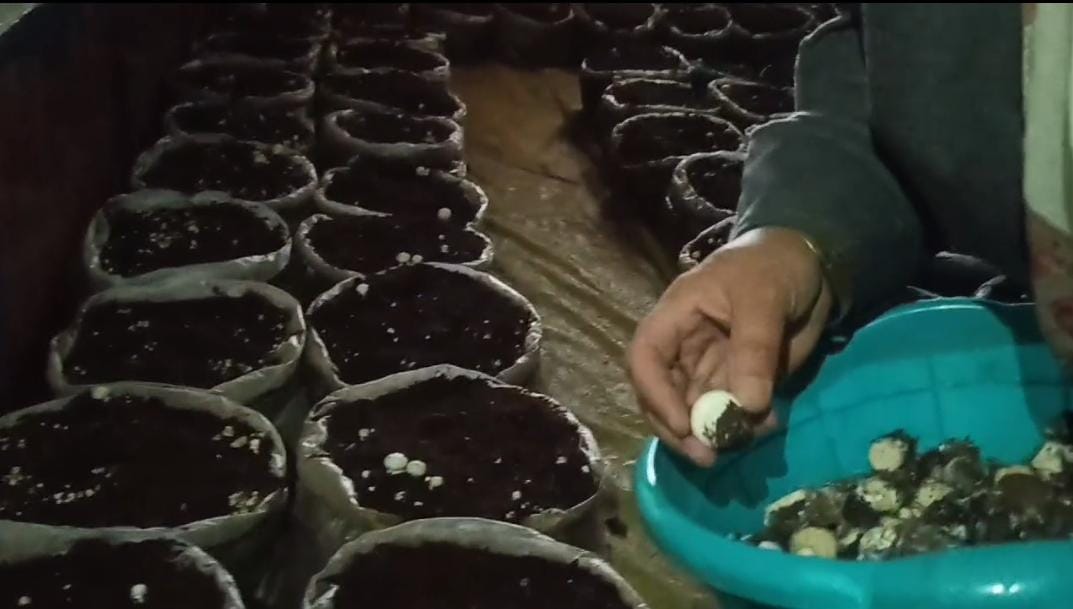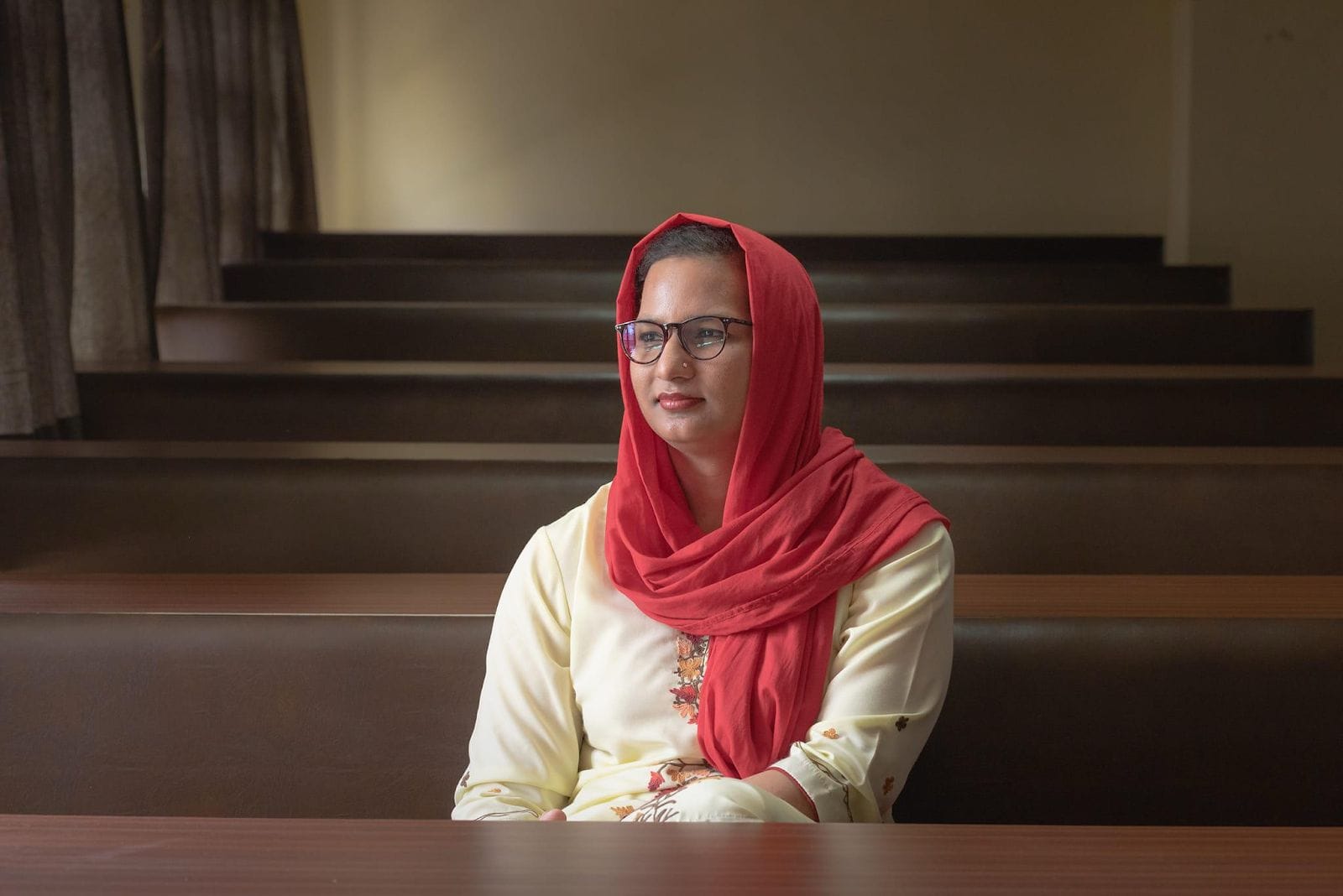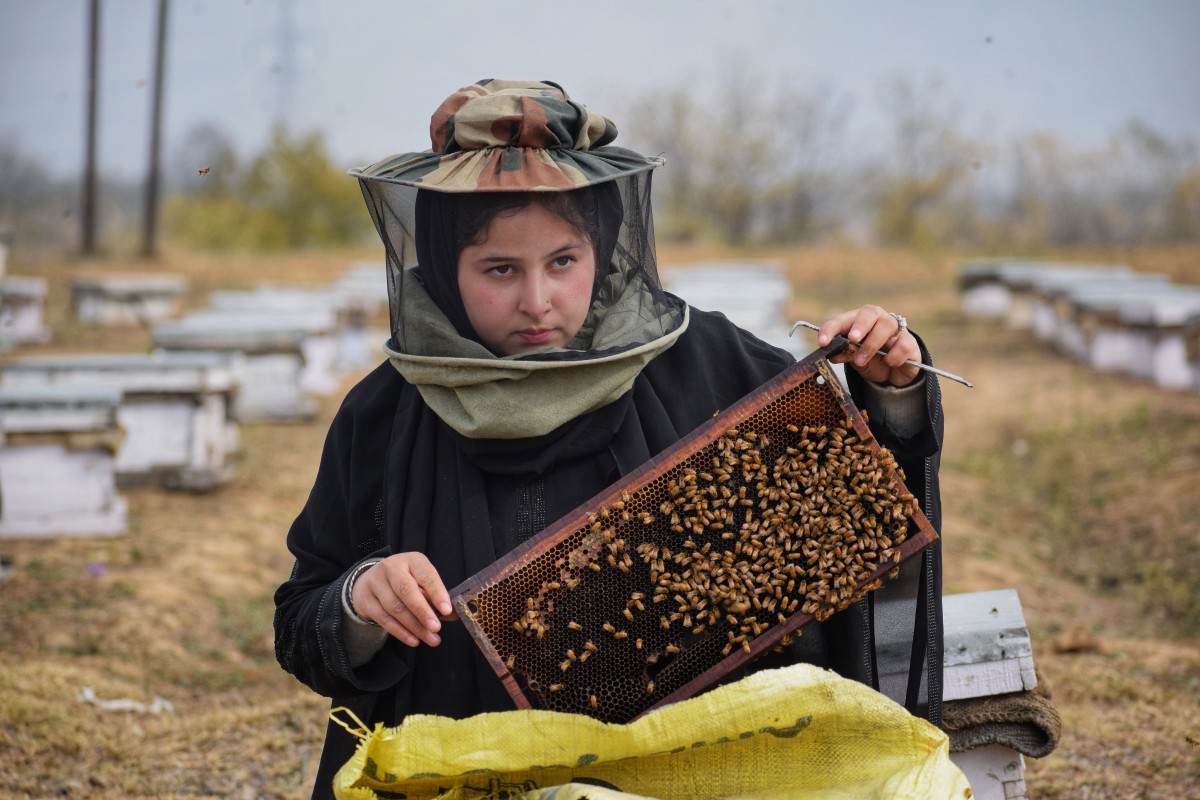Srinagar, J&K: Situated nearly 68.8 kilometres from the heart of the valley, Srinagar city, is the place where a mother of three children lives, who has successfully established her mushroom unit in the heart of Yaripora village in South Kashmir’s Kulgam district. Rubi Jan, the lady, said she started her mushroom unit in 2021 while she was associated with a self-help group, and the idea of establishing her own business unit stuck in her mind.
Rubi Jan, the lady, said she started her mushroom unit in 2021 while she was associated with a self-help group, and the idea of establishing her own business unit stuck in her mind.
‘I myself feel very confident after entering this mushroom business, and my work has been going smoothly since I started my own mushroom unit here in Yaripora village. Also, many people here in my village got inspired by me and started their own mushroom growing units as well,’ she told FII.
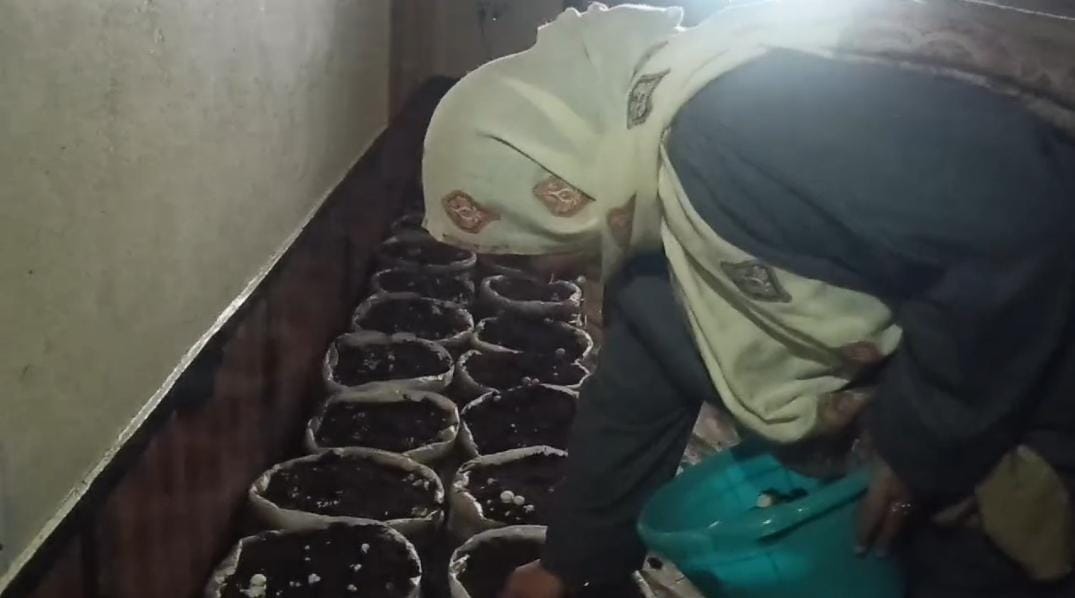
‘As I started growing, many people came to me and asked for help and assistance in establishing their businesses, and so I didn’t hesitate. Today, we have many mushroom units here in Yaripora, and all thanks to Almighty Allah, we are earning our livelihood handsomely,’ she said.
Mushroom cultivation in Kulgam district
Like Rubi, many other women in Kulgam are earning their own livelihoods, as they have established their own units for mushroom cultivation, and under the National Rural Livelihood Mission (NRLM) department, many female entrepreneurs are present in Kulgam village today and running their businesses. The NRLM department collaborated with the agriculture department, which jointly helped the women entrepreneurs establish their own mushroom units in the district.
More than seventeen-eighteen groups are currently active in Kulgam, and all are engaged in some kind of work; no one is left behind at home. ‘Many people are inspired by me and decide to establish their own businesses, either mushroom units, shops, or anything else,‘ added Rubi Jan.
Speaking about livelihood and earning, she told FII that on every unit, she earns merely 20 thousand rupees, including the subsidy which needs to be deposited initially and then comes back to them.
‘On each single unit, I merely receive about 20,000, of which 15,000 goes towards my subsidy. After completing all the procedures, that subsidy gets reverted back to me, and as I can say, I earn a handsome amount from one unit of mushrooms,’ she added.
‘By working in my own space, I feel more comfortable than working outside, and here I am also protected from the cold wind and heat elements. From my perspective, this is a very positive step, and that’s why other women should enter this field and earn their own livelihoods.’
–Rubi Jan
‘While sitting at home and working successfully from my room, I feel there is a lot of scope in this mushroom cultivation work. By working in my own space, I feel more comfortable than working outside, and here I am also protected from the cold wind and heat elements. From my perspective, this is a very positive step, and that’s why other women should enter this field and earn their own livelihoods,‘ she added.
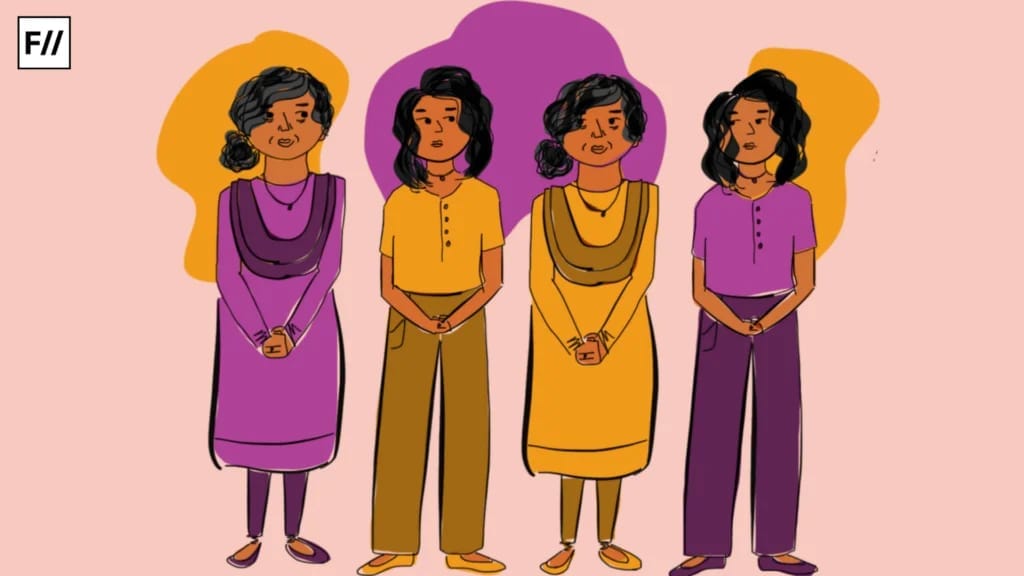
Regarding the procedure of establishing the mushroom unit, Rubi Jan told FII that first, they need to pay rupees 15,000, and then that money gets reverted back to them in the form of subsidy. After storing the mushroom in a room for more than a month, the seed gets transplanted, and after completing the other procedures, the mushroom is ready, and the only thing they need to keep in mind is that the seed shouldn’t get affected by insects or any kind of worm.
‘Our own cultivated mushrooms are much better in quality and hygiene than outside mushrooms. Mushrooms are fresh, and we directly pick them from our manufacturing units and distribute them to shop owners, dealers, or other kinds of wholesalers,‘ added Rubi Jan.
About mushroom cultivation
In many senses, growing mushrooms outdoors is ideal because the forest or any shady environment with good humidity and airflow creates the ideal conditions for fruiting without the need for any climate control on the part of the farmer, and the same is the procedure with the cultivation of mushrooms indoor. Also, the method of processing mushrooms involves fresh mushrooms having a very limited life; hence, processing is recommended to enhance the shelf life.
‘Initially, mushrooms are washed in cold water, then blanched in boiling water for 3-4 minutes. They are then dehydrated in a dryer and packed, as it is advisable to pre-treat mushrooms in a brine solution to prevent discoloration.‘ says Rubi Jan.
Rubi Jan’s story of being a mother of three children and the difficulties she faced
Talking about her journey from a homemaker to a successful entrepreneur and mushroom unit owner, Rubi Jan told us how women face problems in depositing the initial 15,000 rupees amount. However, after getting back the amount in the form of subsidy, they are all set to start earning their own money, and the difficulty lies only in the initial phase of setting up the business.
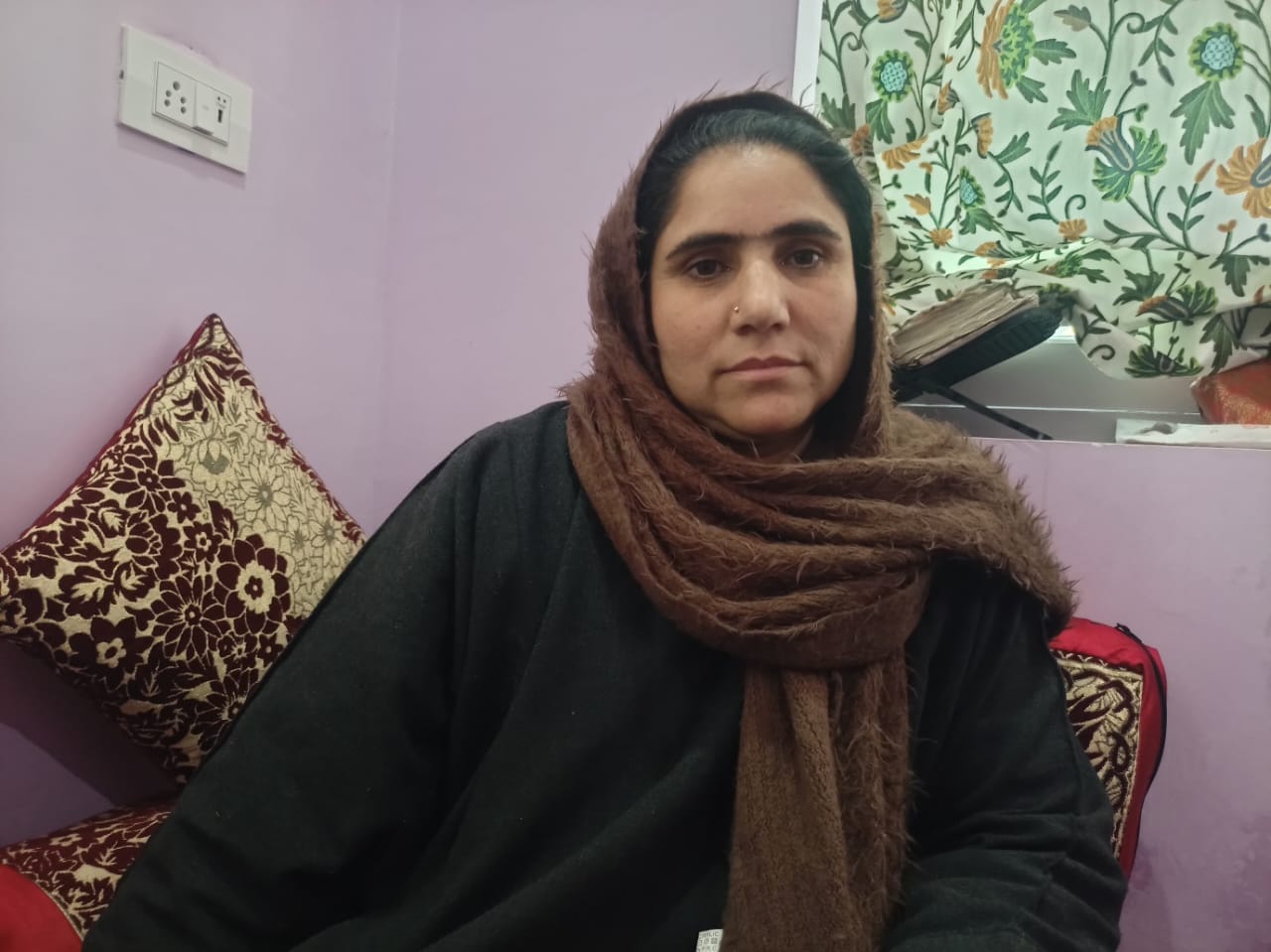
‘While I speak about Kashmiri mushrooms, they are good for health, and being made on the site of Kashmir. I can say there is no compromise in quality, and they are free from harmful chemicals and fertilisers. The mushroom in Kashmir is also used in Kashmiri weddings, which are famous worldwide for their varieties of cuisine.’ She told FII.
‘Rubi Jan’s mushroom venture is not just about growing fungi; it’s about cultivating opportunities for women to thrive and contribute to our local economy. In a region where traditional gender roles often limit women’s economic participation, Rubi Jan’s success sends a powerful message: that every woman has the potential to be a trailblazer in her own right,‘ said Zahida a local lady from Kulgam. She added that Rubi Jan’s story exemplifies the resilience and resourcefulness of Kashmiri women. Her journey from household responsibilities to entrepreneurship inspires us all to dream big and break barriers.
She added that Rubi Jan’s story exemplifies the resilience and resourcefulness of Kashmiri women.
Talking about the procedure of mushroom cultivation and its temperature management, Rubi Jan told FII that mushroom cultivation needs different kinds of temperatures that need to be monitored from time to time. While talking about her mushroom unit, she mentioned she has installed a temperature measuring device and uses that to manage the temperature from time to time. It is also important to keep the mushrooms getting fresh air from time to time to keep them free from fungi and other elements. She added that, in the initial stage, they keep these mushrooms sealed in polythene for 20 days, and after casing and watering properly, in about 8 to 10 days, the mushroom develops and is uprooted.
‘After setting up my own mushroom unit, I am helping my family and my husband financially, and in my opinion, it is a very good and positive step a woman can take towards her family,‘ Rubi told FII while advising the youth and especially women to involve themselves in some kind of work and try not to stay unemployed, as unemployment is very high right now, and women should be self-sufficient to earn their own livelihoods.
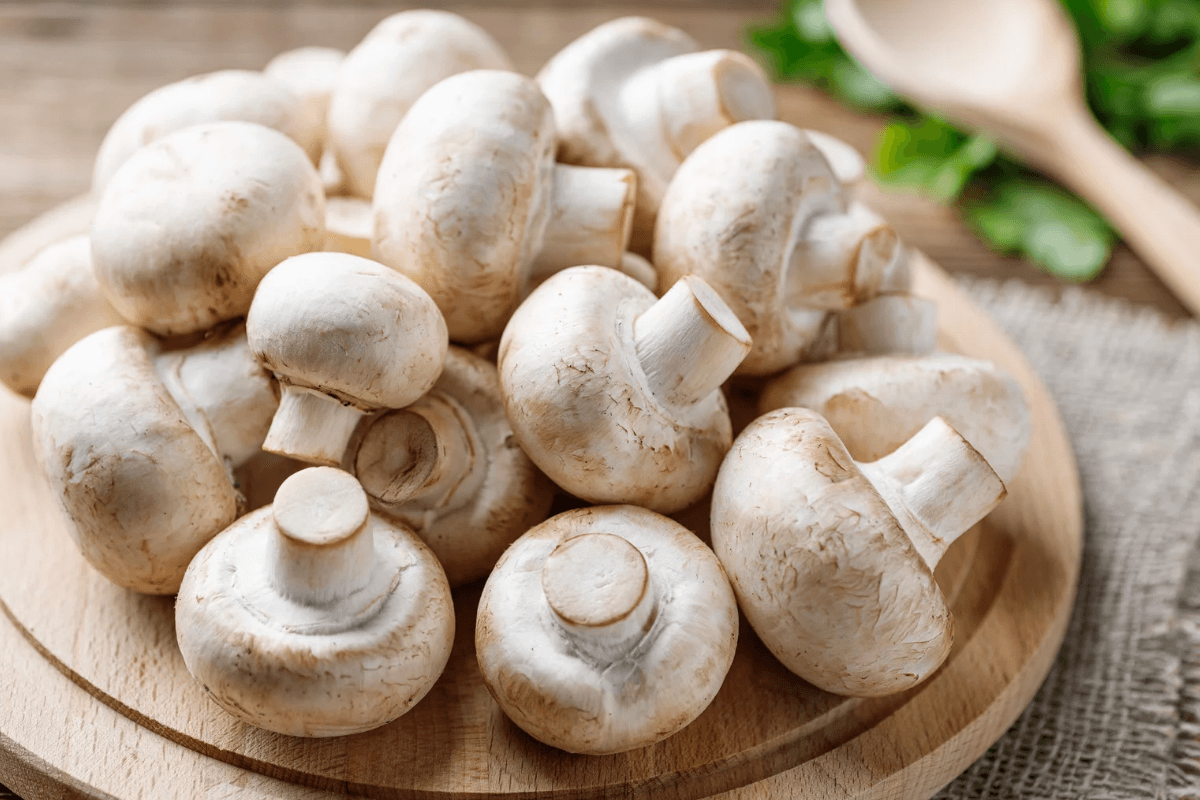
A woman while highlighting the needs and background of mushroom in the Kashmir Valley told FII that mushrooms are a universal food that can be eaten by anyone, and in Kashmir, the world-famous “Kashmiri Wazwan” has a unique dish made of mushrooms. Being a special dish in Kashmiri cuisine makes this mushroom even more special.
Note: The additional reporting of this piece, especially the arrangement of photos and quotes, has been done by Basit Lone.
About the author(s)
Rehan Qayoom, a dedicated journalist hailing from the enchanting landscapes of Kashmir, passionately weaves stories as a freelance writer. With a voracious appetite for knowledge, he immerses himself in the rich tapestry of tales emanating from the heart of Jammu and Kashmir.
